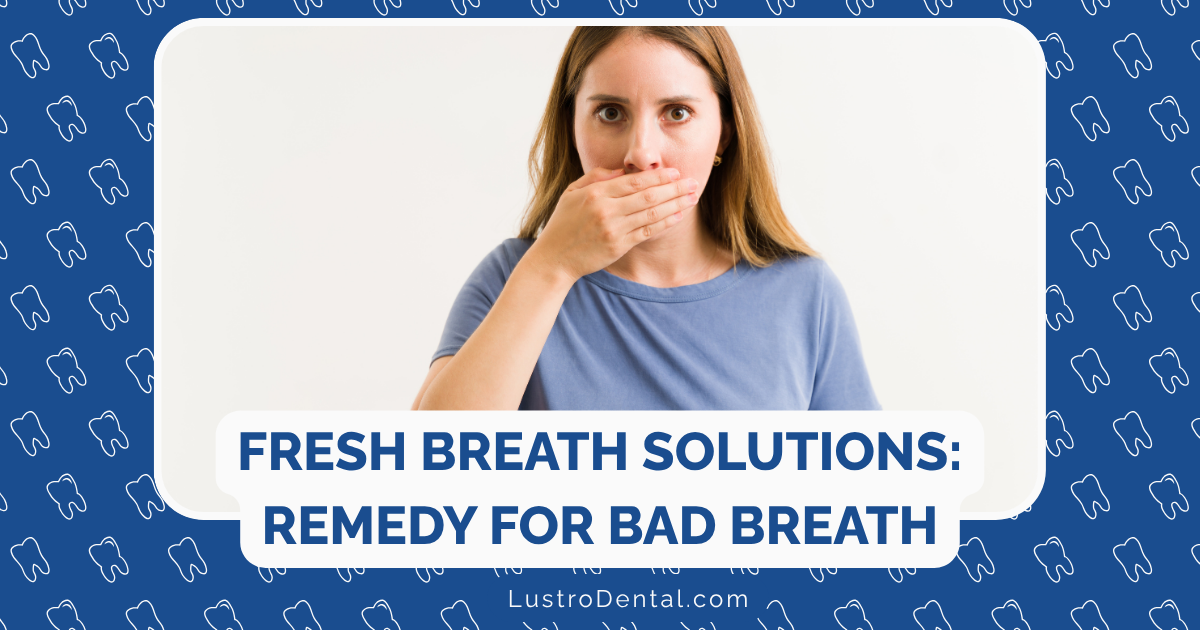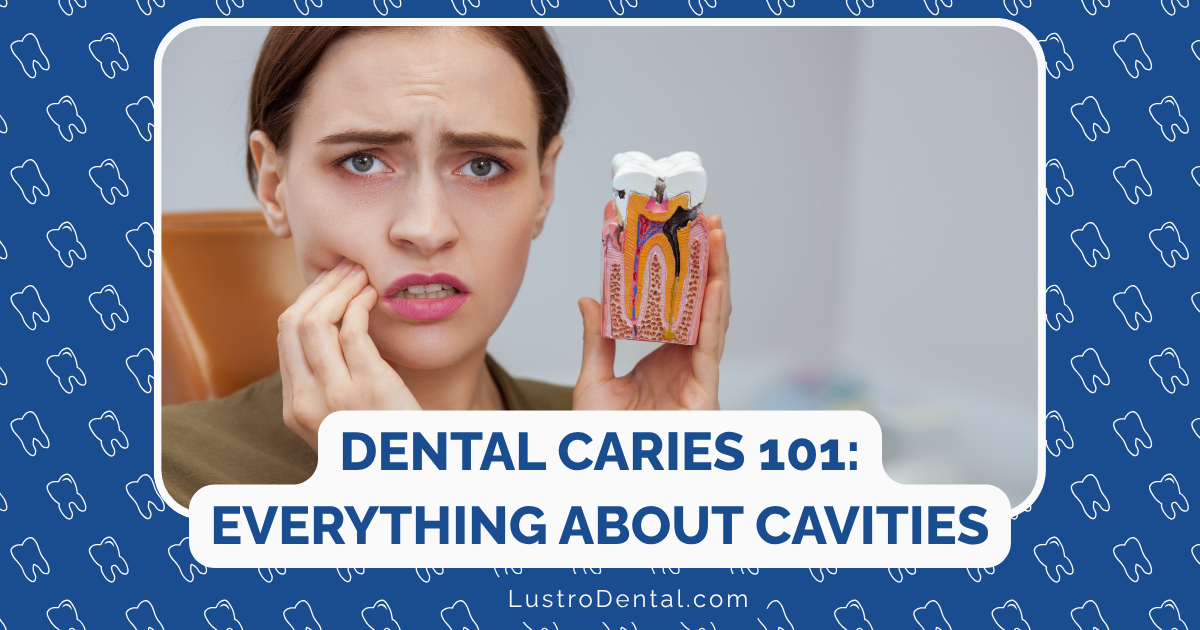Fresh Breath Confidence: Addressing Bad Breath with Dignity and Effectiveness

We’ve all been there—that moment of panic when someone offers a mint after a conversation, leaving us wondering if our breath was less than fresh. Bad breath (halitosis) affects approximately one in four people globally, making it one of the most common oral health concerns. Yet despite its prevalence, it remains a topic shrouded in embarrassment and social anxiety.
This guide aims to address bad breath with both dignity and effectiveness—because everyone deserves the confidence that comes with fresh breath, without shame or judgment.
Understanding Halitosis: Knowledge is Power
Before we can effectively address bad breath, it’s important to understand what causes it. Approaching the issue with knowledge rather than embarrassment is the first step toward a solution.
The Science Behind the Smell
Recent research from Japan has unveiled fascinating insights into the microbiology of bad breath. Scientists have discovered that a bacterium called Streptococcus gordonii plays a crucial role by activating another bacterium, Fusobacterium nucleatum, to produce methyl mercaptan—a compound with that distinctive sulfurous odor we recognize as bad breath.
As reported by Blende Dental Group, this interaction worsens after consuming sulfur-rich foods like garlic and onions. Interestingly, Fusobacterium nucleatum is also linked to periodontal disease, highlighting the connection between bad breath and overall gum health.
Common Causes Beyond Bacteria
While bacteria play a central role, several other factors can contribute to halitosis:
- Poor Oral Hygiene: The most common cause, allowing bacteria to thrive on food particles left in the mouth
- Dry Mouth (Xerostomia): Reduced saliva flow means fewer natural cleansing benefits
- Diet: Certain foods like garlic, onions, and high-protein/low-carb diets can affect breath odor
- Tobacco Use: Smoking dries out the mouth and introduces its own unpleasant odors
- Medical Conditions: Sinus infections, diabetes, GERD, liver or kidney disease can all manifest as bad breath
- Medications: Many drugs reduce saliva production as a side effect
According to Harvard Health, understanding these underlying causes is crucial for effective treatment—because addressing symptoms without tackling root causes provides only temporary relief.
The Psychological Impact: More Than Just a Physical Issue
Bad breath can significantly impact our social interactions and self-confidence. A 2023 study found that people with chronic halitosis reported:
- Higher levels of social anxiety
- Reduced willingness to engage in close conversations
- Lower self-esteem in professional settings
- Avoidance of intimate relationships
These findings highlight why addressing halitosis with dignity is so important. The psychological toll can be as significant as the physical discomfort, creating a cycle where anxiety about breath leads to social withdrawal, which further impacts mental wellbeing.
Dignified Solutions: Effective Approaches Without Shame
1. The Foundation: Elevated Oral Hygiene
The cornerstone of fresh breath is a thorough oral hygiene routine, but there’s a difference between basic cleaning and truly effective practices:
- Brushing with Purpose: Brush for a full two minutes, twice daily, paying special attention to the gum line and back of the tongue where bacteria congregate
- Flossing Reimagined: Rather than seeing it as a chore, consider flossing a form of self-care—reaching places your toothbrush simply cannot
- Tongue Cleaning Revolution: Using a quality tongue scraper can eliminate up to 75% of breath-causing bacteria, according to Scott Babin DDS
- Hydration as Therapy: Drinking eight or more glasses of water daily naturally cleanses the mouth and promotes saliva production
2. Nutritional Approaches to Freshness
What you eat affects more than just your waistline—it directly impacts your breath:
- Strategic Food Choices: Incorporate crisp, fibrous foods like apples, celery, and carrots, which act as natural tooth cleaners
- Probiotic Power: Yogurt with active cultures can help balance the oral microbiome
- Herbs as Natural Fresheners: Parsley, mint, and cilantro contain chlorophyll, which has natural deodorizing properties
- Mindful Consumption: If you enjoy foods known to cause odor (like garlic and onions), consider timing their consumption for when social interactions are less likely
3. Addressing Dry Mouth with Dignity
Dry mouth is a major contributor to halitosis but can be managed effectively:
- Hydration Habits: Carry a reusable water bottle and sip throughout the day
- Sugar-Free Stimulation: Sugar-free gum or lozenges can stimulate saliva production
- Alcohol-Free Rinses: Specialized mouth rinses designed for dry mouth can provide relief without the burning sensation of alcohol-based products
- Humidity Helpers: Using a humidifier at night can prevent mouth-breathing and morning dryness
4. Mindful Management in Social Settings
Social situations can trigger anxiety about breath freshness. Here are dignified approaches to stay confident:
- Discreet Fresheners: Keep sugar-free mints or gum handy for quick freshening
- The Water Habit: Drinking water between alcoholic beverages or coffee not only prevents dehydration but also rinses away odor-causing particles
- Breath-Check Partners: Establish a signal with a trusted friend who can discreetly let you know if breath freshening is needed
- Confidence in Preparation: Knowing you’ve taken proactive steps for fresh breath allows you to focus on meaningful conversations rather than breath anxiety
When to Seek Professional Help: No Shame in Support
If consistent self-care doesn’t resolve halitosis, it’s time to consult professionals—and there’s absolutely no shame in doing so. In fact, it demonstrates self-respect and proactive health management.
According to the Cleveland Clinic, persistent bad breath despite good oral hygiene may indicate underlying health conditions requiring attention:
- Dental Professionals: Can identify and treat gum disease, infections, or other oral health issues
- Medical Evaluation: May be necessary if bad breath stems from conditions like GERD, diabetes, or sinus infections
- Specialized Treatment: Some dental practices now offer halitosis clinics with comprehensive assessment and personalized treatment plans
The Future of Fresh Breath: Innovations on the Horizon
The landscape of halitosis treatment is evolving rapidly. According to research highlighted by PH Dental, several promising developments are emerging:
- Targeted Probiotics: Designed to balance the oral microbiome rather than just mask odors
- Microbiome Mapping: Personalized treatment based on your unique oral bacteria profile
- Advanced Tongue Cleaning Devices: Using gentle suction to remove bacteria more effectively than traditional scrapers
- Specialized Oral Rinses: Tailored to local water composition for maximum effectiveness
Building a Sustainable Fresh Breath Routine: Your Personal Action Plan
Creating habits that stick requires more than just knowledge—it needs a practical, sustainable approach:
Morning Ritual (5 minutes)
- Brush thoroughly (2 minutes), including your tongue
- Floss between all teeth
- Rinse with an alcohol-free mouthwash
- Hydrate with a full glass of water
After-Meal Maintenance (1 minute)
- Rinse with water if brushing isn’t possible
- Chew sugar-free gum for 5-10 minutes
- Use interdental brushes for quick cleaning between teeth
Evening Routine (5 minutes)
- Brush thoroughly (2 minutes)
- Clean your tongue with a scraper
- Floss between all teeth
- Rinse with a specialized mouthwash
- Stay hydrated before bed
Weekly Practices
- Replace your toothbrush head (every 3 months)
- Clean any dental appliances thoroughly
- Check your oral care products for expiration dates
Bi-Annual Commitments
- Schedule regular dental checkups and cleanings
- Discuss any persistent breath concerns with your dentist
- Update your oral care routine based on professional recommendations
Embracing Fresh Breath Confidence
Remember that addressing halitosis is not about shame or embarrassment—it’s about self-care, health, and the confidence to engage fully in life’s interactions. By approaching the issue with knowledge, dignity, and effective solutions, you can transform what might feel like a personal flaw into an opportunity for improved wellbeing.
Fresh breath isn’t just about how others perceive you—it’s about how you feel about yourself. When you know your breath is fresh, you speak more confidently, laugh more freely, and connect more authentically.
Have you found particular strategies effective for maintaining fresh breath? Share your experiences in the comments below—your insights might be exactly what someone else needs to hear.







